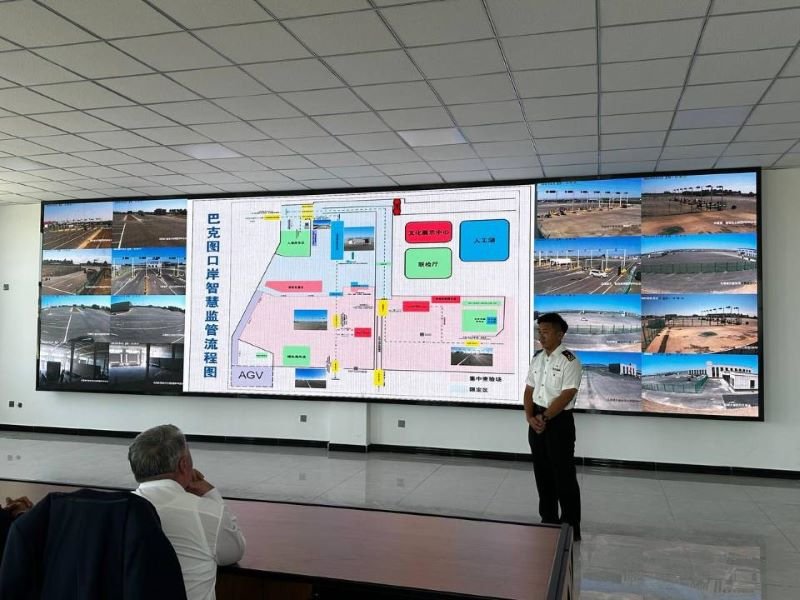Astana (TDI): In a move aimed at modernizing trade logistics, Kazakhstan and China have started testing a new system that uses driverless trucks to carry goods across their shared border.
The trial is underway at the Bakhty-Pokitu border post and is part of a larger initiative known as “Smart Customs.” Officials say the system is meant to cut red tape at checkpoints, speed up cargo movement, and reduce the reliance on drivers by using automated vehicles to cross between the two countries.
The pilot project was launched following a meeting between Zhandos Duisembiev, head of Kazakhstan’s State Revenue Committee, and Zhixianwei, party secretary of the Chinese city of Tacheng. Both sides signed an agreement to deepen cooperation and focus on digital upgrades in customs and transport operations.
According to the details shared by Kazakh authorities, the system includes digitally processed customs paperwork, autonomous trucks guided by smart navigation, uninterrupted cross-border movement without manual stops, and real-time tracking and control of vehicle operations.
Read More: China-Kazakhstan Strategic Partnership and Industrial Cooperation
Officials hope the use of these technologies will reduce waiting times at border posts, bring down freight costs, and boost overall efficiency.
The two governments want to eventually push cargo volumes at the Bakhty-Pokitu crossing to around 10 million tons per year. Plans also include setting up logistics hubs near the border to improve traffic flow and ease pressure on existing infrastructure.
Read More: Kazakhstan, China Vow to Deepen Strategic Partnership
Kazakhstan is looking to use this project to attract investment, generate new jobs, and increase exports of key agricultural products like wheat, oilseeds, meat, and processed foods.
The Ministry of Finance said that streamlining customs procedures through automation will support Kazakhstan’s ambitions to become a central transit route in the region.
Farkhund Yousafzai is an Associate Editor at The Diplomatic Insight.
- Farkhund Yousafzai
- Farkhund Yousafzai
- Farkhund Yousafzai















